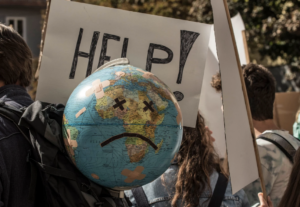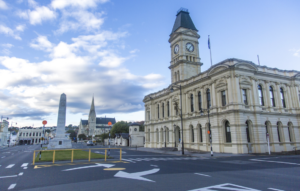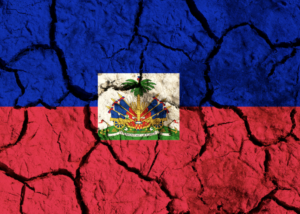In an unexpected turn of events, Haiti’s primary airport was forced to shut down on Monday following an alarming incident involving gang violence targeting a commercial flight set to arrive in Port-Au-Prince. The escalating violence led to airlines like American Airlines, JetBlue, and Spirit Airlines announcing the cancellation of flights to and from Haiti, impacting travel plans for countless passengers.
Reports from the airline, the U.S. Embassy, and flight monitoring sources revealed that gangs opened fire on a Spirit Airlines flight from Fort Lauderdale, Florida, as it was moments away from landing in Haiti, resulting in a flight attendant sustaining minor injuries. The aircraft had to be diverted to the Dominican Republic, leaving it riddled with bullet holes and providing chilling evidence of the dangerous conditions in Haiti.
This episode was just one in a series of violent clashes between gangs and law enforcement across different parts of Port-au-Prince, with residents witnessing harrowing scenes of gun battles and properties being set ablaze by the criminal elements. Amidst the chaos, schools were shut down, and panic gripped the city as civilians fled for safety.
The chaos erupted a day after Haiti’s interim prime minister, Garry Conille, was ousted by a council formed to restore order and democracy in the country. Alix Didier Fils-Aimé, a merchant, was swiftly sworn in as the new interim prime minister, promising to bring stability to the crisis-hit nation and spearhead efforts to conduct long-overdue elections.
Speaking at his inauguration, Fils-Aimé emphasized the urgent need to restore hope and security in Haiti, acknowledging the suffering of those who have been impacted by the violence and unrest. With widespread public discontent and escalating gang activities, the new prime minister faces an uphill battle in steering the nation towards a path of peace and renewal.
Haiti has been plagued by political turmoil and gang violence for weeks, creating a sense of lawlessness and fear among its populace. Gangs have taken advantage of the power vacuum and rising tensions to assert control over the capital city, disrupting essential services like airports and ports and spreading chaos and instability.
The United Nations estimates that a staggering 85% of Port-au-Prince is under the control of gangs, posing a significant challenge to local law enforcement and peacekeeping efforts. Calls for a U.N.-backed peacekeeping mission have intensified as authorities struggle to contain the violence and restore order in a city besieged by criminal elements.
Louis-Henri Mars, a prominent figure in peacebuilding initiatives in Haiti, expressed concerns over the dangerous ramifications of the ongoing political crisis on the already vulnerable population. He warned that the escalating violence could lead to more deaths, displacement, and worsening hunger in a nation where half of the population is on the brink of starvation.
The political upheaval in Haiti can be traced back to the assassination of President Jovenel Moïse in 2021, which triggered a spiral of violence and chaos that has persisted until today. The formation of the transitional council was intended to guide the country towards democratic elections and stability, but internal conflicts and power struggles have hampered its effectiveness.
Efforts by international organizations like the Organization of American States to mediate disputes within the council have been unsuccessful, underscoring the challenges of reconciling competing interests and agendas in a volatile political environment. The United Nations has urged all parties involved in Haiti’s political transition to prioritize the nation’s interests and work together constructively to address the deep-rooted issues facing the country.
As Haiti grapples with the fallout of gang violence and political uncertainty, there is a palpable sense of urgency to restore peace and normalcy to a nation in crisis. The newly appointed interim prime minister faces a daunting task in navigating the complexities of governance and security while addressing the pressing needs of a population that is reeling from the effects of prolonged instability and insecurity. Only time will tell if Haiti can overcome its current challenges and forge a path towards a brighter, more stable future.






